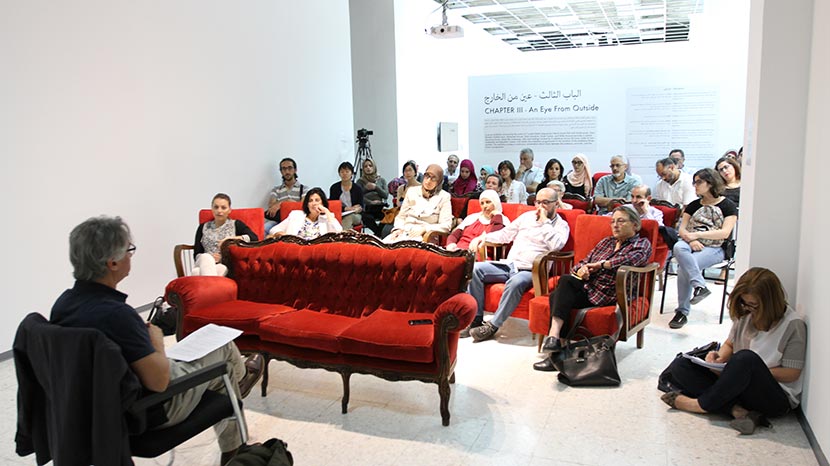Iranian Academic Examines Sociopolitical Change Approaches in Middle East
Iranian sociologist and professor in Global Affairs, Sociology and Middle Eastern Sociopolitics Asef Bayat reviewed in an October 12, 2016 lecture the role of “ordinary people” in sociopolitical change.
Speaking at the invitation of Birzeit Museum as part of the “Cities Exhibition” lecture series, Bayat introduced his book Life as Politics: How Ordinary People Change the Middle East. The work examines how “ordinary people” find public spaces a platform where they can shed their inhibitions and verbalize their disappointment with the conditions in which they live.
Bayat said that both contentious politics and social non-movements are key vehicles for producing meaningful change in the Middle East. He argued for the quiet encroachment of political non-movements, which he defined as the collective actions of non-collective actors.
According to Bayat, non-collective actors are able to trigger much social change, even though these practices are rarely guided by an ideology or recognizable leaderships and organizations.
He then described sociopolitical activism practiced by non-movement actors and how it can refashion political dynamism in the Middle East.
Referring to Egypt’s experience in sociopolitical change, for example, Bayat said that change started taking shape at the hands of subaltern groups that were disgruntled with their country’s policies, resulting in the movements that expressed their advocacy for democracy and opposition to the regime.
Asef Bayat is the Catherine and Bruce Bastian Professor of Global and Transnational Studies and Professor of Sociology at the University of Illinois at Urbana-Champaign. He is the author of Making Islam Democratic: Social Movements and the Post-Islamist Turn (Stanford, 2007).







